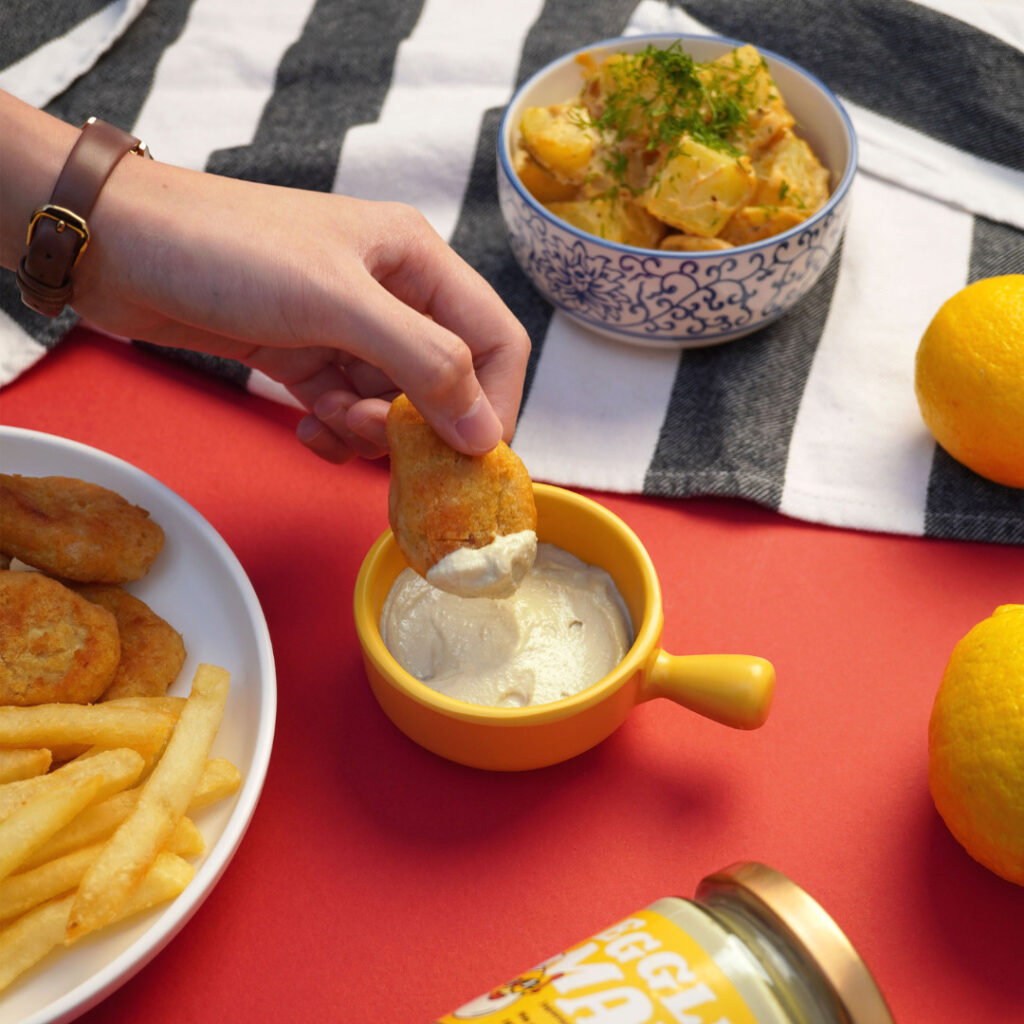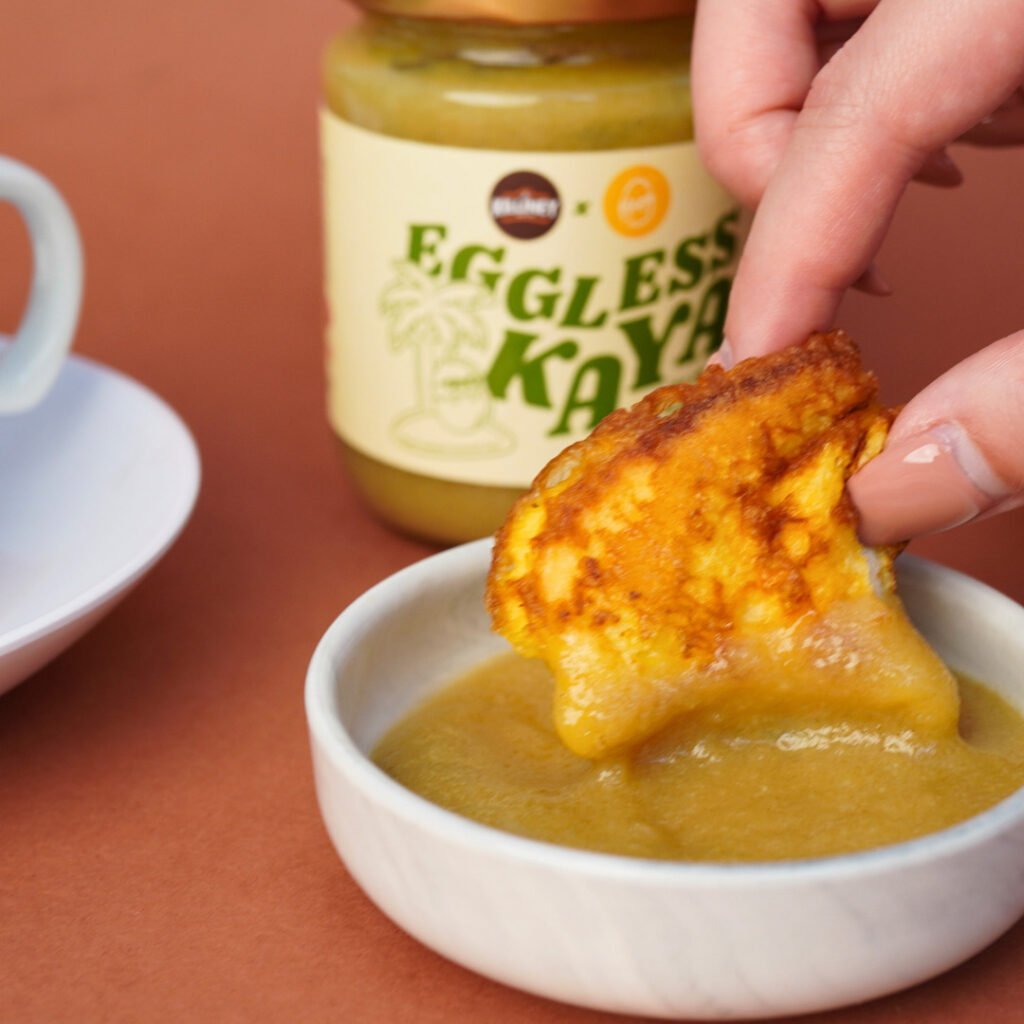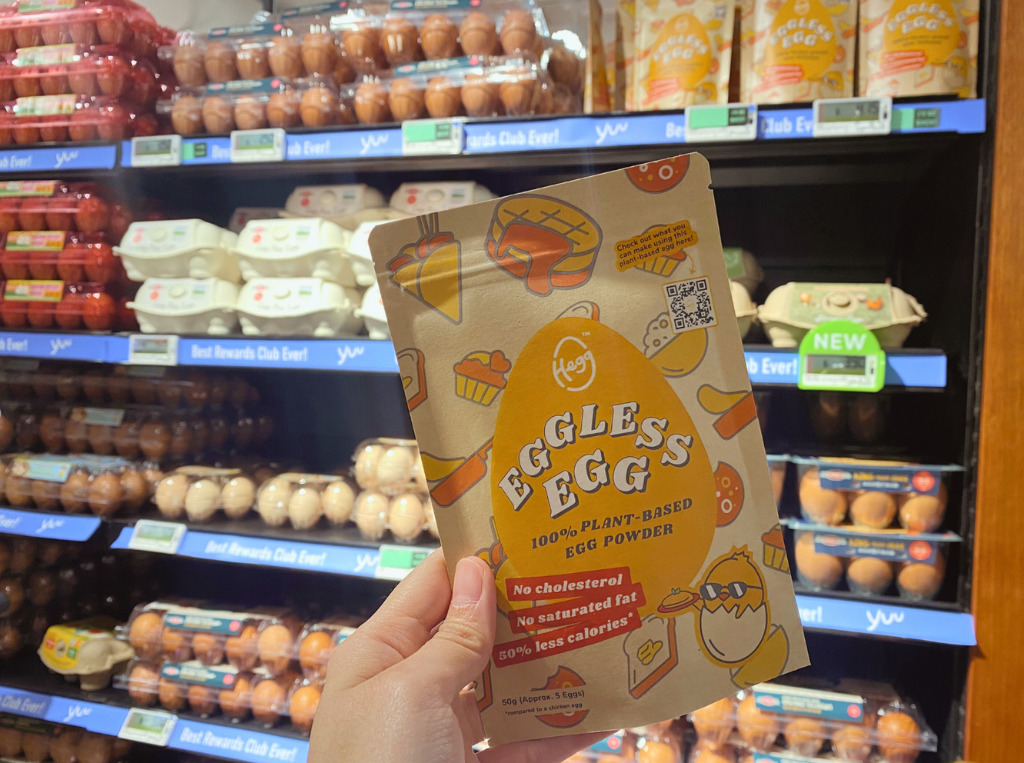Singapore Vegan Startup Hegg is Now in the Egg Section of Your Supermarket, After Partnering with the Island’s Leading Egg Distributor
3 Mins Read
Singaporean vegan egg startup Hegg – a subsidiary of Howw Foods – has entered into a distributorship agreement with the nation’s largest egg distributor, Dasoon. The move is designed to expand the presence of Hegg’s Eggless Egg in local supermarkets, and open more offline channels for the brand’s other plant-based egg products.
The collaboration has led to the debut of Hegg’s vegan Eggless Egg in cold-storage outlets across Singapore. The powder – which is made from canola protein, edible gum and potato fibre – has 6.4g protein per 10g serving and can be used in baking, steaming and frying, apart from regular egg applications.
Consumers can buy it at S$4.50 for a 50g pack (equivalent to five servings) in the egg section of supermarkets, as well as on online channels like Lazada, Shopee and Hegg’s own website (where a 500g pack is also available).
Plant-based eggs in Singapore

Hegg was launched in 2021 by food tech startup Howw Foods, which uses a proprietary artificial intelligence platform called RE-GENESYS to develop its plant-based products. The company secured S$3M in a pre-Series A round to advance its R&D capabilities and commercialise Hegg in 2021. Hegg also released an Eggless Kaya – a type of southeast Asian coconut jam – in partnership with local coffee chain Killiney Kopitiam in 2022, and added a third product, an Eggless Mayo, to its lineup last month.
Hegg isn’t the first plant-based egg company in Singapore. Float Foods has been retailing its vegan whole egg substitute OnlyEg since 2020. It received a development grant in 2021 to help further commercialise the product and has also filed a patent for the egg alternative. Last year, it launched Asia’s first vegan tamagoyaki and partnered with meal kit brand DayDayCook in Hong Kong. The startup, which closed a $1.6M oversubscribed seed funding round in 2021, also collaborated with many restaurants in Singapore this Veganuary to push OnlyEg into foodservice.
Singapore’s 30 by 30 Initiative

Both brands are part of a growing list of companies supporting Singapore’s 30 by 30 initiative, which aims to locally produce 30% of all food consumed by 2030 to reduce the island nation’s reliance on imports and boost its food security. Launches like Dynamic Foodco’s Dynameat brand, TiNDLE’s new vegan chicken pieces, and HerbYvore’s plant-based cheese support this initiative.
Vegan egg substitutes can be much better for the environment. While there are no specific numbers for Heggs’ products just yet, similar products have fared much better than traditional eggs in climate-related criteria. For example, UK-based aquafaba brand Oggs, which is marketed as an alternative to egg whites, has 72% fewer emissions than chicken eggs. And US producer Just Egg claims its liquid egg alternative uses 98% less water, 83% less land and has 93% fewer carbon emissions than conventional eggs.
Meanwhile, about two-thirds of Singapore’s eggs are imported, which means a shift to locally produced, more climate-friendly alternatives is imperative for the 2030 target. And products like Hegg’s Eggless Eggs are building a planet- and people-friendly food system.



